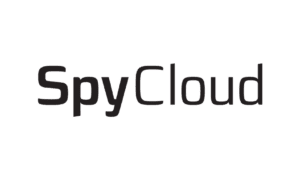In the shadowy depths of the internet, a cryptocurrency has emerged as the dark web’s favorite: Monero. With its robust privacy features, Monero enables anonymous transactions, making it the go-to currency for illicit activities. You can check how zilliqa is revolutionizing the gaming industry
Use Cases of Monero on the Dark Web
Monero, the cryptocurrency of choice on the dark web, finds numerous use cases within this clandestine realm. Its privacy-focused features and untraceable transactions make it an ideal tool for various illicit activities. One prominent use case is money laundering, where Monero allows individuals to obscure the origins and destinations of their funds. By leveraging Monero’s privacy technology, criminals can effectively launder money while evading detection by law enforcement agencies.
Another significant use case of Monero on the dark web is its role in facilitating anonymous transactions within the drug trade. The dark web hosts numerous online marketplaces where drugs of all kinds are bought and sold. Monero’s privacy features provide a secure and untraceable method of payment, allowing both buyers and sellers to conduct transactions without leaving a digital trail. The increased adoption of Monero in these marketplaces highlights its importance in enabling anonymous drug trade on the dark web.
Furthermore, Monero has become intertwined with cybercrime and ransomware attacks. Malicious actors leverage the cryptocurrency’s privacy features to demand ransom payments anonymously. This has led to a surge in ransomware attacks targeting individuals, businesses, and even government organizations. Monero’s untraceable nature ensures that these cybercriminals can receive their extortion payments without fear of identification or traceability.
It is commonly utilized in the weapon trade, providing a means of conducting anonymous transactions for the purchase and sale of firearms and other dangerous weapons. Monero also plays a role in facilitating hacking activities, as hackers seek to anonymize their financial transactions when purchasing hacking tools or conducting transactions related to cyberattacks.
The widespread use of Monero on the dark web raises significant concerns regarding ethics and legality. Its ability to enable illicit activities poses challenges for law enforcement agencies attempting to track and combat criminal behavior. The prevalence of Monero in money laundering, drug trade, cybercrime, and other unlawful pursuits calls for increased awareness and regulatory measures to address these issues effectively.
The Dark Side of Monero’s Usage
While Monero’s privacy features have made it a favored cryptocurrency on the dark web, its usage also raises significant concerns and poses challenges in various aspects. One of the primary ethical concerns associated with Monero’s anonymity is the potential for misuse and illicit activities. The very same features that attract individuals engaged in criminal behavior also hinder law enforcement agencies in tracking and combating these activities effectively.
Money laundering, facilitated by Monero’s privacy-focused technology, presents a considerable challenge. The ability to obscure transaction origins and destinations enables criminals to launder money undetected. This not only allows illicit funds to flow freely but also undermines the integrity of financial systems and contributes to the perpetuation of criminal enterprises.
Furthermore, Monero’s connection to the drug trade highlights the darker aspects of its usage. The anonymity provided by Monero makes it an attractive option for individuals involved in buying and selling drugs on the dark web. This creates a significant challenge for law enforcement agencies seeking to disrupt and dismantle drug networks, as the transactions conducted using Monero are nearly impossible to trace.
The rise of cybercrime and ransomware attacks has also been fueled by Monero’s privacy features. Malicious actors leverage the cryptocurrency’s untraceability to demand ransom payments from individuals, organizations, and even government entities. This has led to a surge in cyberattacks, as criminals realize the potential financial gain and reduced risk associated with using Monero for ransom payments.
Additionally, the impact of Monero’s usage on the economy cannot be overlooked. Money laundering, drug trade, and other illicit activities enabled by Monero have far-reaching consequences. They undermine legitimate businesses, distort market dynamics, and contribute to the erosion of trust in financial systems. The unregulated nature of cryptocurrencies like Monero poses challenges for regulators and policymakers in creating effective frameworks to address these issues.
From a regulatory standpoint, Monero’s privacy features present a unique challenge. While privacy is an essential aspect of individual freedom, it can also be exploited for nefarious purposes. Striking a balance between privacy and accountability becomes increasingly complex in the context of cryptocurrencies like Monero.
Conclusion
As the dark web continues to thrive, Monero remains its cherished currency, fueling a range of illicit activities. While its privacy features raise ethical concerns and regulatory challenges, the future of Monero and other privacy coins in our evolving digital landscape is uncertain. The symbiotic relationship between the dark web and Monero unveils a complex web of privacy, security, and societal implications.



































